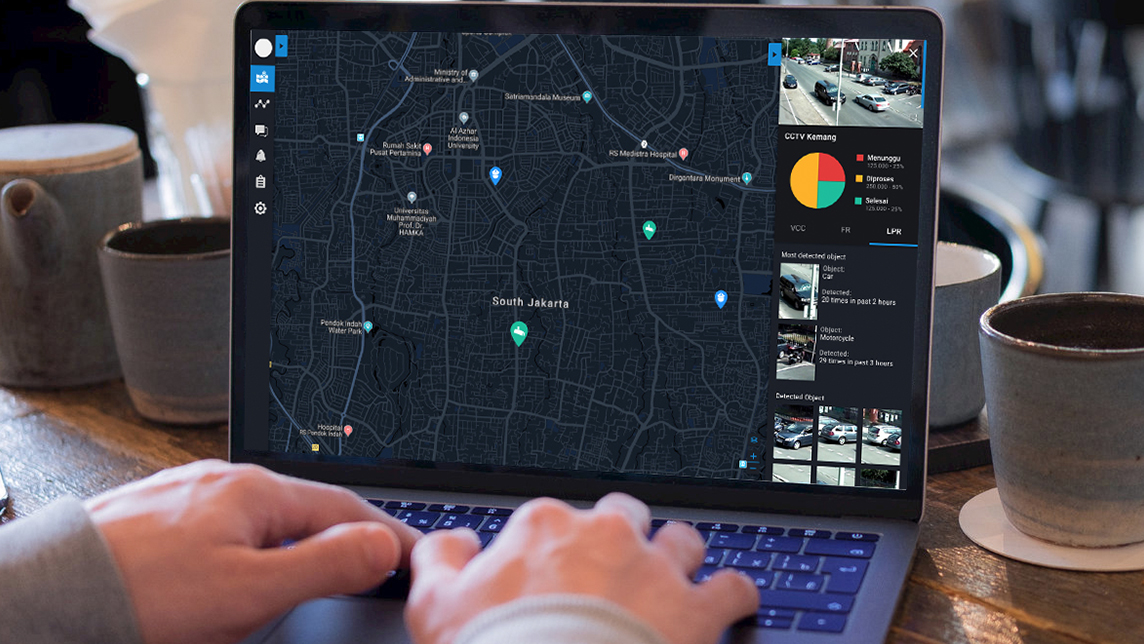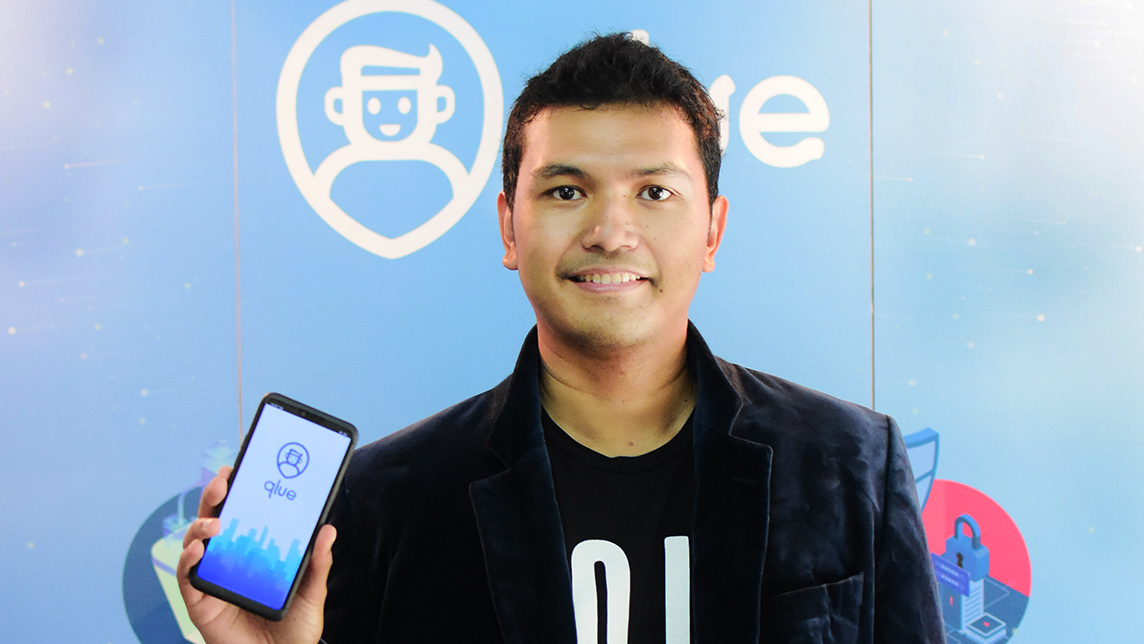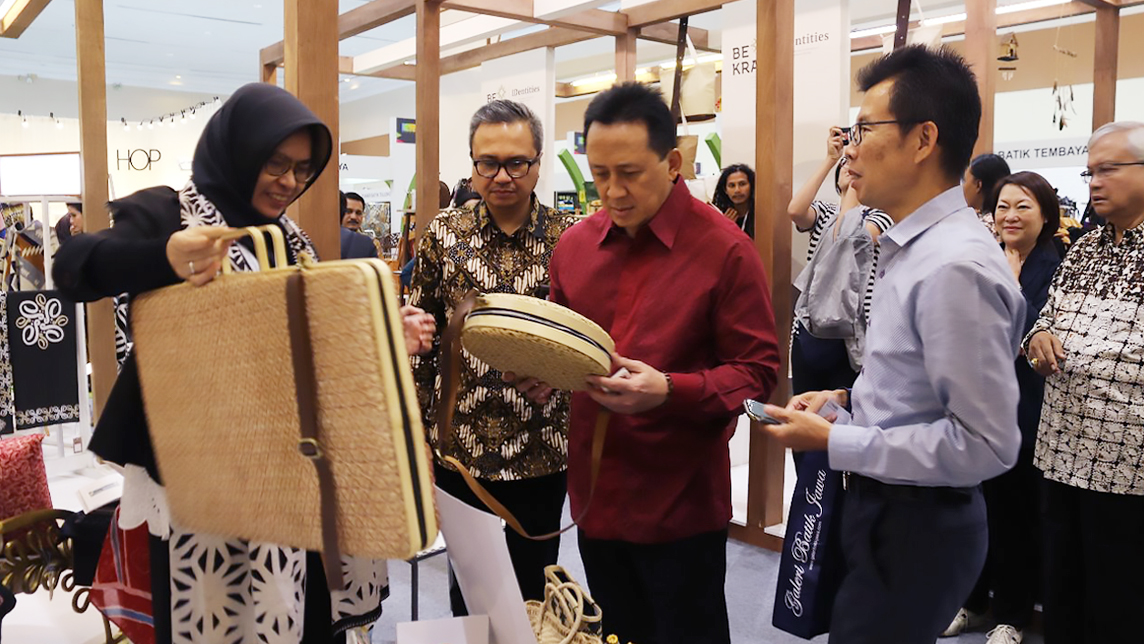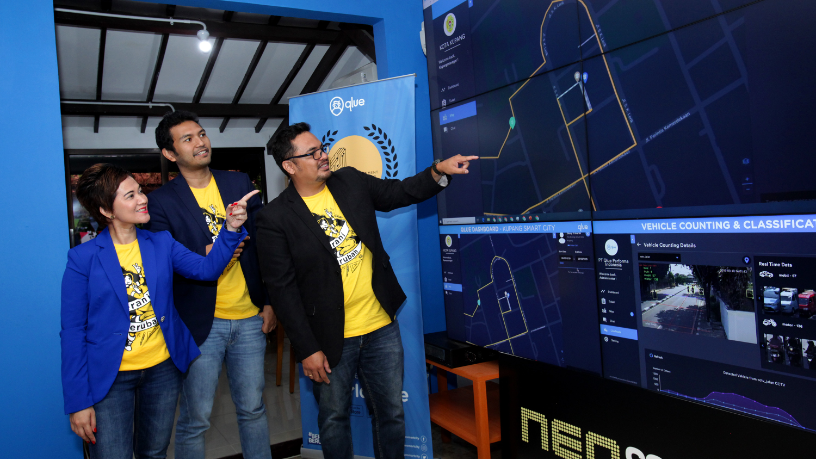After gaining much success working with the Jakarta government, Qlue has expanded their reach, working with other regional governments and law enforcement, disaster response and private parties. The company remains very much focused on the smart city sector, however. Qlue co-founder and CEO Rama Raditya walked us through his company's work outside Jakarta and shared his views about the hurdles and opportunities for smart cities in Indonesia.
What is Qlue's position right now in the development of smart cities in Indonesia?
We are very focused on smart city development, especially in safety and security issues like flood prevention and disaster response. We've helped reduce flood spots in Jakarta from 8,000 to 850. We've also helped cut down on illegal levies, reduced overloaded dumpsters, helped capture drug dealers, and more. We've also helped facilitate budgeting discussions by providing them with a platform for discussion and the data they need to make decisions.

Which city did you help in disaster recovery?
Bima, in West Nusa Tenggara province. The city was heavily damaged by flash floods in December 2016. These days, we work together with the National Disaster Management Board (BNPB) whenever they're dispatched to disaster zones.
How does the partnership work, if the disaster zone doesn't have an established Qlue presence?
Whenever there's a disaster, they will bring us in and our team will tell local volunteers and communities to report infrastructure damage, lack of supplies and other things that need to be attended to. The reports go into a dashboard that can be accessed by NGOs and government bodies, so they can send aid and assistance as necessary. After just two weeks, Bima was able to recover by up to 97%. Otherwise normally that takes six months or more.
What is Qlue's vision in further developing and spreading the smart city concept in Indonesia, and maybe ASEAN?
Smart city is a very interesting emerging topic, and more people are picking it up. We began not knowing what a smart city is supposed to be, but the further we went, the more we realized that the concept is aligned with Qlue's vision from the very start. In a way, we sort of gave birth to the smart city concept in Indonesia. When Jakarta Smart City was launched, it sparked a trend where other cities look to us as their benchmark.
Government support is much needed, and the Ministry of Communication and Informatics has been very supportive. For example, they launched a “100 Smart Cities” initiative, where we went to all 100 cities to provide guidance and support, alongside our telco partners.
Infrastructure is also very important, and there needs to be significant upgrades to connectivity. Without the right infrastructure, there is no way we can implement smart city.
Internationally we are involved with WeGO (World Smart Sustainable Cities Organization) and GSMA, which also has a global smart cities initiative. We were also invited as a speaker at the previous World Mobile Congress, and will also be invited to a global smart city event in Barcelona later this year. It only makes sense for us to be involved in these communities and events, because we are focused on smart city development.
Have you seen any smart city implementations abroad that can be a good model for Jakarta or other cities in Indonesia?
As I mentioned, when we first built Qlue, we didn't know what smart cities are supposed to look like. When the system was in place, we showed it to a lot of people abroad. I remember there were two Singaporean ministers who came to Jakarta to study our smart city system. Apparently there were a few things that they liked and decided to build themselves, inspired by Qlue.
It seems people abroad are surprised by our interpretation of the smart city concept, because their implementation usually heavily involves sensors and CCTV. Things like facial recognition is nothing new to them, while in Indonesia we could only implement this fairly recently. They were heavily reliant on sensors, but we are heavily reliant on people.
Are there any trends or challenges that you're seeing in smart city development right now?
One challenge is the need to educate users and government bodies about smart city. It's not just about putting CCTVs everywhere. Many people also have this misconception about smart cities in Indonesia, where they think that by installing 4G or 5G networks they are already "smart cities."
That's not the case. A smart city should be able to prevent or resolve problems with limited need for human intervention.

Another challenge is infrastructure. There are many cities that want to develop smart city capabilities, but still have many dead spots in their internet coverage. Fortunately, we partner with a few telcos to help lay down more optic fibre cables and increase internet coverage, and we can then start implementing our platform and command center.
We haven't even got to the CCTV part yet. That requires a lot of bandwidth, so it tends to come later on.
What we can do in the meantime is to rely on citizen reports. Smartphone penetration has reached 140+ million and it's still growing, so it makes sense to empower the people to make positive change with a technology that's already accessible.
Back to Jakarta. The capital was featured in Eden Strategy Institute's Top 50 Smart City Governments report, where it ranked 47. The report praised Jakarta's smart city vision but noted that it lacks “talent-readiness.” Do you agree with this assessment?
Smart city development needs "heavy artillery," not just in front-end, back-end engineers as such.
First, we need strong smart city consultants because Jakarta is a complex megacity with so many problems that need deep analysis. So far, only a handful of people here really understand smart city concepts down to the core.
The second part is to analyze the data, and then use it for predictive analysis. By cross-referencing many data points, in theory we should be able to determine the right course of action and send instructions to an IoT device, which can then perform preventive actions.
In terms of talent, Indonesia is probably still lacking in people trained in AI, IoT, machine learning and such. Fortunately, more companies, including the unicorns, are developing AI initiatives, which can help tremendously in promoting the field and raising new talent.
We also develop a lot of AI implementations and we're hiring the best local talents for AI, but there still aren’t enough.

You mentioned at the Smart Citizen Day event that Qlue had a drop in the number of reports it received. You said that there was a misconception that people thought Qlue was going to be sidelined by the new government in Jakarta. How did Qlue recover?
It turns out the number of reports we received increased again, because apparently the provincial government never slowed down [in using Qlue]. What caused the drop was the public assumption that with the change in government, Qlue was going to be abandoned.
But it was only a matter of time before the public realized that the app was still being used, and they would go on to tell others to report things through Qlue. We're not particularly worried, because we know that our partnership with the provincial government is very strong.
So you're confident that Qlue has built a system that works?
Well, it's not just us; the Jakarta Smart City unit has developed the system, with a team in place and a program that's still running. So even if the personnel and the government changes, we're confident that this will keep running. If it's good, it will remain in place. The previous JSC head, Mr. Setiaji, has already moved to West Java government, and the program is still running well. We even have new initiatives.
What puts Jakarta's smart city project ahead of other smart city projects in Indonesia is that we have a separate Technical Implementation Unit [i.e. the Jakarta Smart City unit]. In other places, the smart city projects remain under the Ministry of Communication and Informatics. The focus in these other places is still divided because they have other work to do. Meanwhile, the JSC unit is specifically made for smart city work, so every day they can think of how to improve the smart city.














